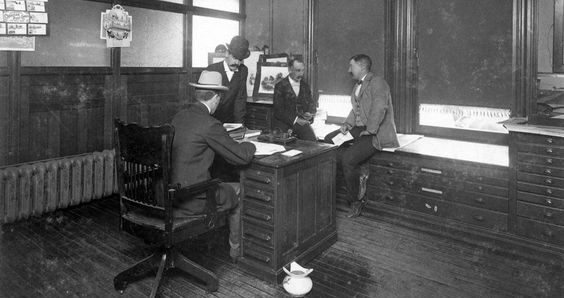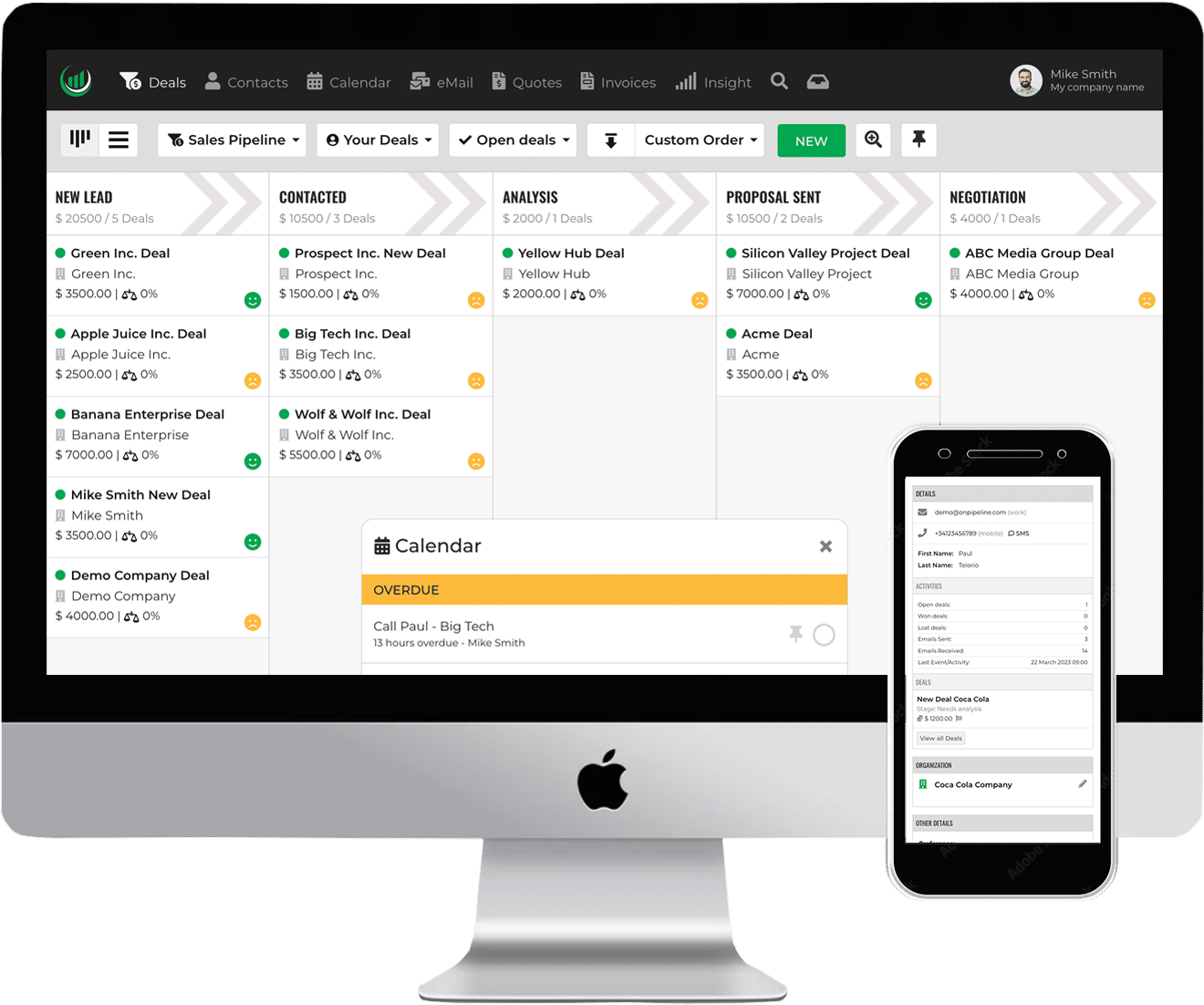If you are not using a CRM, your business is growing and you reach your goals, you may feel there’s no need for a change. Let’s have look at what you are currently using to track your customer information: Spreadsheets? Business cards? Emails?
Why you need a CRM
A CRM can centralize the information. You can find addresses, notes from the last phone call, and emails in the matter of seconds. Getting the right information to the right person quickly may be essential in a business.
A CRM can help you when you hire new employees, but it also helps you be more effective and profitable. With a CRM you:
- Know what to do every day – You know exactly who your customers and prospects are. Each day you see exactly who to follow up with in order to move to the next pipeline stage.
- Personalize every interaction – With a CRM, you get an instant insight into all past conversations with your contacts. You can tailor every interaction and nurture your leads.
A CRM keeps everyone up to date, you’ll never forget an opportunity. Reminders, automations and insights will help you focus on deals that require immediate attention.
You don’t need a CRM
If you don’t want your contact data in one location
If you are comfortable and enjoy the task of gathering customer information from various sources like spreadsheets, emails, and paper trails, then you do not necessarily need a CRM. You can manually collect and organize customer information to suit your needs.
If you don’t want communication across your company
Without a CRM system, sales representatives are unable to quickly access vital information about a prospect such as previous interactions and what actions should be taken next.
Poorly recorded activities make it difficult to transfer leads from one rep to another, and can lead to a potential lead falling through the sales funnel.
Without access to clear and accurate customer data, reps are unable to properly nurture the leads in their pipeline, resulting in missed sales opportunities.
If you don’t want to serve your customers better
A Customer Relationship Management software would provide important customer data that can be used to inform sales reps and help them be more prepared for customer conversations and pitches.
This data could include past purchase history, previous interactions or conversations with the customer, their preferences and interests, and any other relevant information that can help the sales rep craft a more informed and tailored pitch.
By having access to this data, reps can gain a better understanding of the customer, their needs, and the best way to approach them. This allows them to be more effective in their conversations and ultimately lead to more sales.
Can you afford a CRM?
Investing in a CRM can feel scary for small business owners. The cost of small business CRM tools starts at only $12 per month for each user. The right CRM solution pays for itself.






